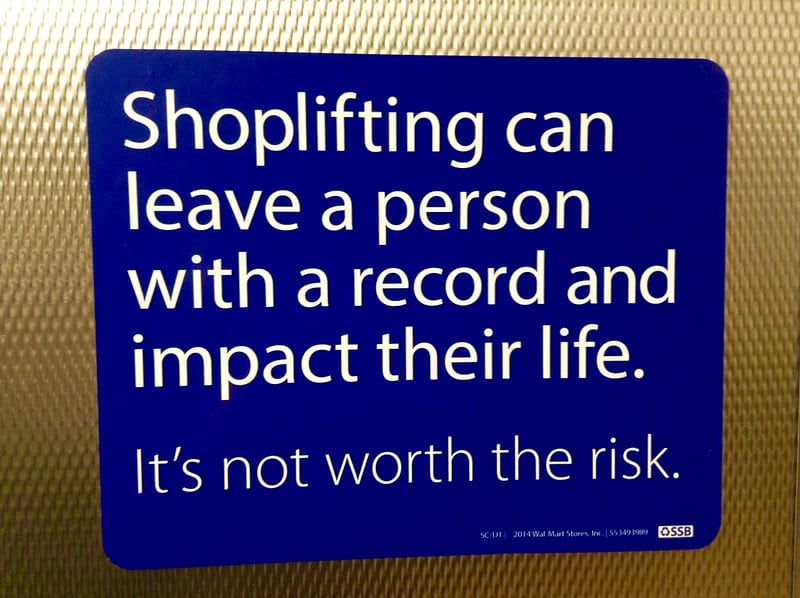
Why clip coupons and wait for sales, when you can save 100% on anything you want? It may sound enticing, except this strategy involves swiping stuff and declining to pay for it.
A new survey has found that nearly a quarter of all respondents admit to shoplifting, with grocery stores their primary target. And most who do, blame inflation and the current economy for their misdeeds.
The LendingTree survey found that 23% of Americans have stolen something at one time or another. Some did it long ago, when they were younger. But 23% of those who have, have done it within the past year. And the vast majority of those recent shoplifters – 90% of them – said it was because prices were too high and they hoped stealing would help them save a few bucks.
The most common items to swipe are food products, followed by clothing and makeup. “What they’re shoplifting tells you a lot about why they’re shoplifting,” LendingTree chief credit analyst Matt Schulz said in a statement. “These generally aren’t thrill-seekers looking for an adrenaline rush or a big score. These folks are taking things that they really, really need.”
Nearly half of all shoplifters said grocery stores are easiest to steal from. Part of the reason could be the prevalence of self-checkouts at grocery stores – an earlier LendingTree survey found that 69% of self-checkout users thought it makes stealing easier, with 15% of shoppers admitting to purposely stealing when going through self-checkout.
While some admit to hiding items on their bodies, in purses or bags, or just walking out with their stolen items in plain sight, others are less bold, by silently accepting mistakes in their favor. 41% have accidentally taken something without paying for it, with most never bothering to return to the store to pay for it, and 34% have said nothing when a cashier forgot to ring up an item during checkout.
The good news, if you can call it that, is that “shoplifters are more likely to stick it to the man than harm a local mom-and-pop shop,” LendingTree found. A majority of shoplifters said they’re more likely to steal from chain stores, while only a quarter have taken items from locally-owned stores.
But the bad news is that most of these crimes go undetected, costing retailers money and resulting in higher costs being passed along to the rest of us. More than half of shoplifters said they got away with it the last time they took something. Of those who were caught, only 24% were criminally charged.
“I’m sure some of the instances were young people being reckless and seeing what they could get away with for the thrill of it, but that’s not the whole story,” Schulz said. “Lots of people are struggling in the face of still-rising prices, and they’re going to somewhat desperate measures to help them get by.”
As shoplifters and coupon fraudsters alike have found out, though, the risks often aren’t worth the rewards. “Getting caught could lead to hefty fines and even jail time,” Schulz warned. “In some cases, the damage can last for years, as a criminal record can make it harder for you to get a job, rent an apartment or get into a college.”
Still, a small segment of survey respondents are unapologetic about their theft – 6% who have shoplifted said they do so regularly, and are likely to do so again.
The prospect of a 100% discount can be awfully tempting for some, especially those who are having trouble affording necessities. But someone has to pay the price for those freebies. Until more shoplifters are caught and discouraged from stealing again, their gain is likely to continue representing honest shoppers’ pain.
Image source: Jeepers Media










